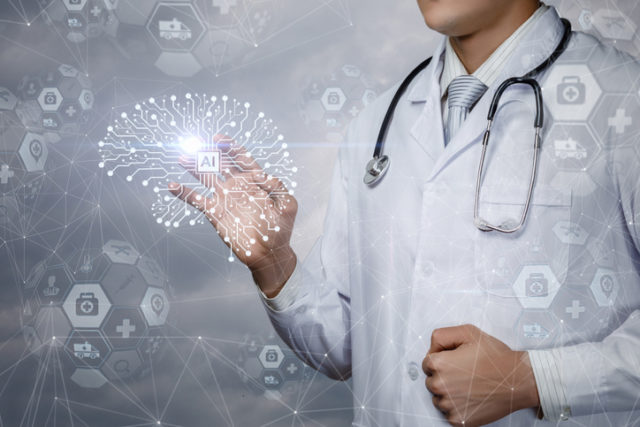
AI is a bit of a buzzword in the healthcare world, so it’s sometimes difficult to tell how much of an impact this technology is going to end up having on the sector. This month, Citi released a report that sought to cut through the noise.
The report focused on how AI will affect the role of clinicians. It predicted that generative AI tools will increasingly streamline many aspects of a clinician’s day in the next five to 10 years — and that this is particularly true for tools that can automate diagnoses and respond to patients’ questions.
The healthcare industry could see an emergence of increasingly effective tools for diagnosis in the coming years, according to the report. As these come onto the scene, clinicians will use them to aid their decision making process, not replace it.
“For example, a family doctor, listening to a patient, may think it’s worth investigating A, B and C; however the AI may also remind the doctor that syndromes D and E are also possible and therefore need consideration,” the report read.
These tools will likely be equipped with generative AI capabilities, such as automatic speech recognition, which can transcribe patient-clinician interactions. The report predicted that this AI will have good accuracy — large language models are less likely to produce wrong information when they are asked to summarize a text, like a transcript of medical conversation, than when they generate something completely new.
To date, no diagnostic generative AI tools have been launched on the market. However, several companies are developing and testing healthcare-focused large language models. For instance, Google unveiled Med-PaLM 2 in April, and the tool is currently being used at Mayo Clinic and other health systems. To begin, they are testing its ability to answer medical questions, summarize unstructured texts and organize health data.
Diagnostic tools that listen to patient interactions to suggest treatment advice will be used mainly by physicians, but other generative AI tools will hit the market to assist other healthcare professionals, including nurses, dieticians and pharmacists, the report predicted.
For example, generative AI can be used to call and check in on patients, which could potentially prevent avoidable hospital admissions and emergency department visits. These tools can gauge a patient’s progress after surgery, call a patient to hear how they are reacting to a new prescription, and conduct welfare checks on older patients.
But clinicians and other healthcare professionals aren’t the only ones who will use new health-focused generative AI tools in the next five to 10 years — consumers will too, according to the report. As the use of large language models becomes more widespread, consumers will likely gain access to chatbot-style tools that answer their medical questions the way a doctor would, it predicted.
While these new advancements may seem exciting, the report noted that it will take years for technology developers to produce tools that are both accurate and easy to use — and that timeline will likely be longer than what AI enthusiasts want.
Photo: Natali_Mis, Getty Images








